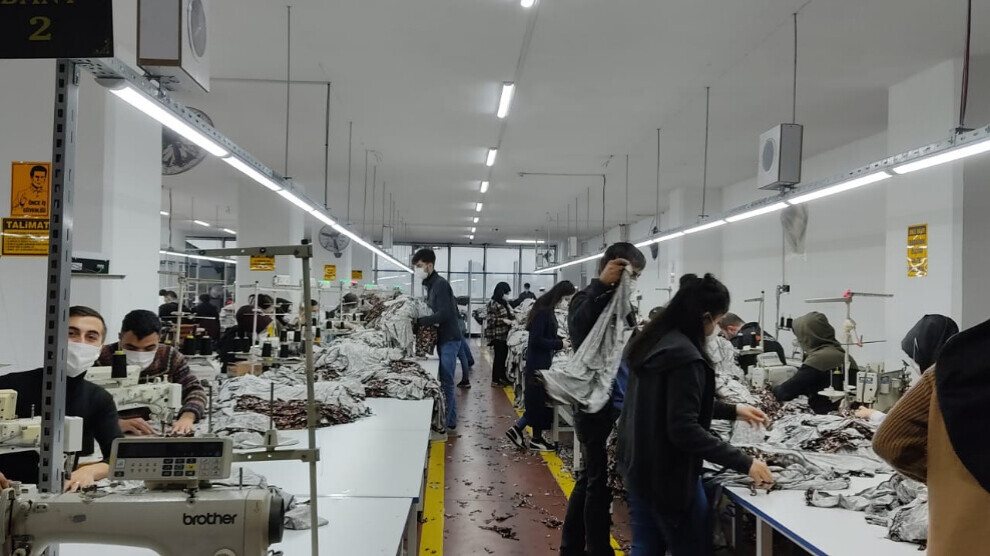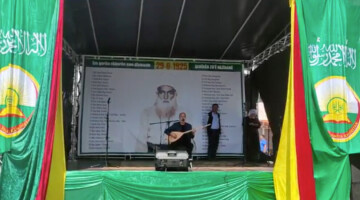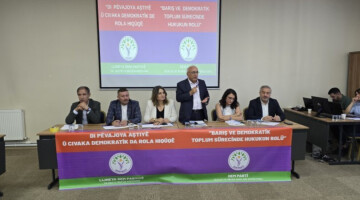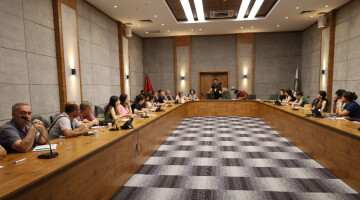Two million textile workers are exempt from the partial lockdown in Turkey.
Since the partial lockdown started on April 30, workers have to go to work 6 days a week using public transport. The situation in the small-scale textile workshops deemed as "backstreet" is much worse than it seems. Textile workers receive a salary close to the hunger limit despite their difficult working conditions. Employees in textile workshops are categorized as tailor, apprentice and cleaner and receive a salary accordingly.
Turkey exported around 16.5 percent of the textile products in 2020. Deprived of trade union and social rights, employees work under flexible conditions without rules, and they are not satisfied with their lives. According to the data of the Ministry of Labour and Social Services, 1,167,918 workers are registered in the sector. When the informal workers are added, it is claimed that there are over 2 million textile workers in the country. ANF talked about both precarious work and partial lockdown with workers in a textile workshop in Küçükçekmece İkitelli, Istanbul. More than half of the workers are refugees and others are Kurdish.
PRECARIOUS WORK
Ayşe P. has been working in textile sector for 18 years. She immigrated to Istanbul with her family. She has had social security for the last three years. “I have security because I am the oldest employee here, but I also understand the employer. No support is given to this sector. Which boss should I be angry with? " she says. Ayşe takes the metro and a bus to come to work. “They say everybody should stay at home but I don't have a chance to do so. Hundreds of people use the same subway every day. Even if my mother and father stay at home, I still have to work outside. I carry the disease to them. I think this is exactly what they call precarious work."
THEY HAVE TO WORK
Refugee workers do not want to talk much. They do not have work permits. Sometimes they have to walk all the way to avoid police control. They receive a salary less than Turkish citizens and most of them are child workers. Headworker of the workshop says “It is the backbone of textile workshops” and adds: “This is not our choice. Most of them do not have a work permit and have to work. We have to work in partial lockdown. The government does not grant support to us. How should we pay a monthly salary in a workshop with 30 employees? We cannot tell these people ‘go home and we will pay your salary’, because we cannot do it."
I CAN’T MAKE BOTH ENDS MEET
Mahmut Şeker is the fielder of the workshop (the person who collects the pieces of cloth falling on the floor) and a 53-year-old retired. He continues to work even though he became retired a year ago: “I was a watchman before. Under these difficult conditions, they expected me to stay at home, but nobody asks me if I can make both ends meet. I can't earn a living properly. To get here from home, I first take the metrobus, then the metro, then the minibus. How can I avoid this disease? It is not possible.”
Other workers don't want to talk. Other workshops in the neighborhood do not allow us to go inside.













